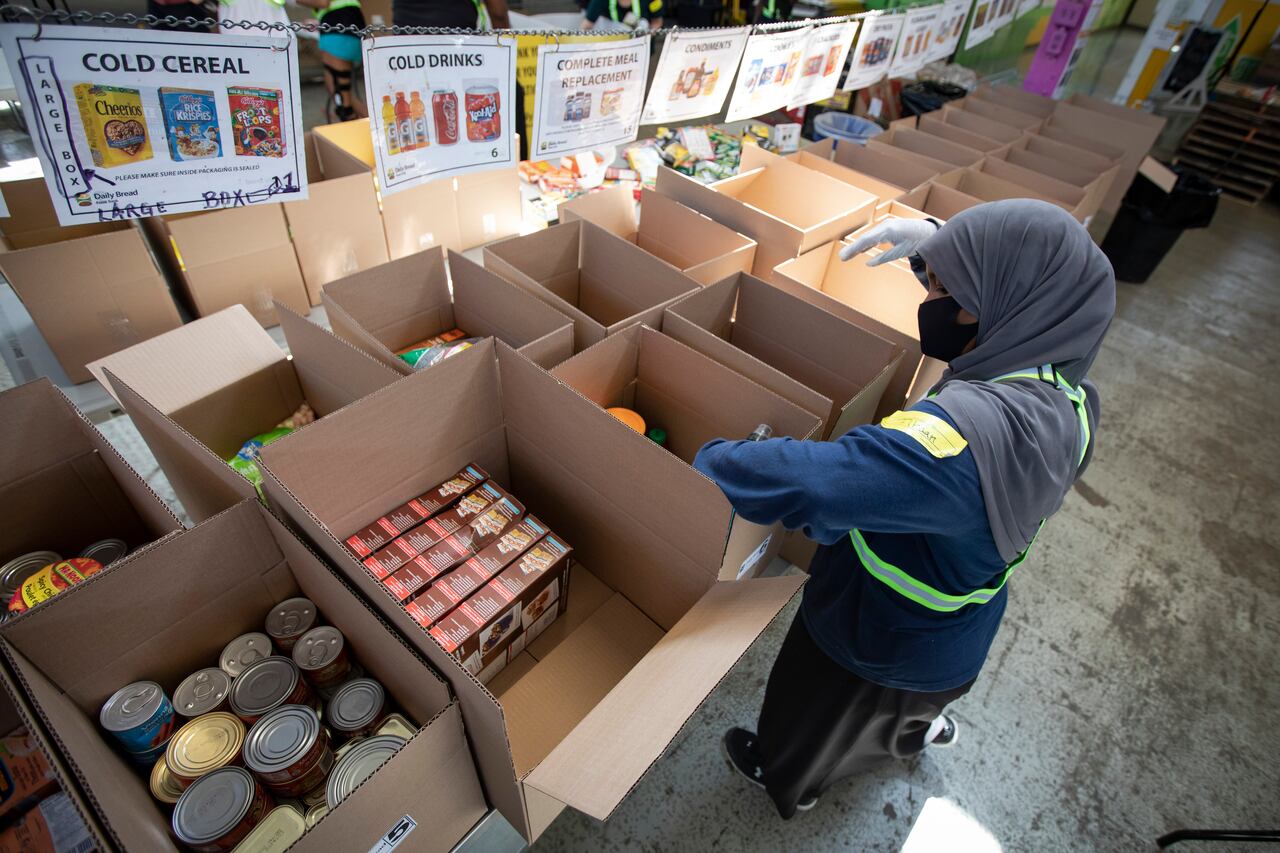60% more Canadians per month expected to use food banks, other programs in 2023, survey finds
Both short-term and long-term solutions needed, say advocates, experts

By Clara Pasieka - CBC News
Food banks and other programs serving vulnerable Canadians are expected to serve 60 per cent more people per month in 2023 than last year, according to a report by a national food rescue organization.
Second Harvest, a national service that rescues food that might otherwise end up in landfills and redistributes it to those in need, says its forecast follows a year that saw a 124 per cent increase in people using non-profit food services.
"What we found was even shocking for us. It's bad everywhere," said Lori Nikkel, CEO of Second Harvest. Nikkel says it isn't just the unemployed who are showing up at food banks to make ends meet. With food costs increasing due to inflation over the last few months, she says "a lot of people that are accessing food supports have jobs."
According to Second Harvest's figures, food banks and other food-related programs across Canada served 5,141,481 people per month last year. The organization expects that number to climb to 8,208,679 in 2023, a roughly 60 per cent increase. That's compared to 2,196,238 per month before the pandemic
The organization's report includes the results of a voluntary online survey it conducted in December, compiling responses from 1,300 non-profit organizations Second Harvest works with across the country. The results are prompting advocacy organizations to call on governments to do more to address the immediate needs of food banks and other programs, as well as the root causes of poverty.
'Where am I going to get my next meal?'
Rikki LaCoste has experienced the scarcity firsthand.
Lacoste is both a user and a volunteer at Weston King Neighbourhood Centre, an organization with a food bank and food program in northwest Toronto.
He says with more users and not enough donations, the third year of the pandemic was hard on many who use food banks in his neighbourhood. One summer day in 2022, he says he spent more than three hours travelling on foot to three different food banks to get the minimum amount he'd need to live.
"It was really stressful for me because rather than working on myself and my mental health and start thinking of the future, I was thinking of the immediate present: 'Where am I going to get my next meal?'"
Lacoste says those who use the food bank are also using drop-in meal programs to fill shortfalls, but he worries the stigma keeps some away, something he and others who work or volunteer at the food bank are doing all they can to reduce.
"If you start coming to the food bank, you meet people just like yourself and feel a little bit less embarrassed," he said. "A good chunk of them started using the food bank for the first time during the pandemic."